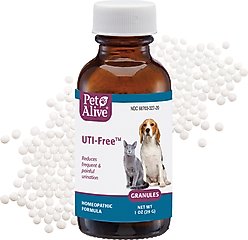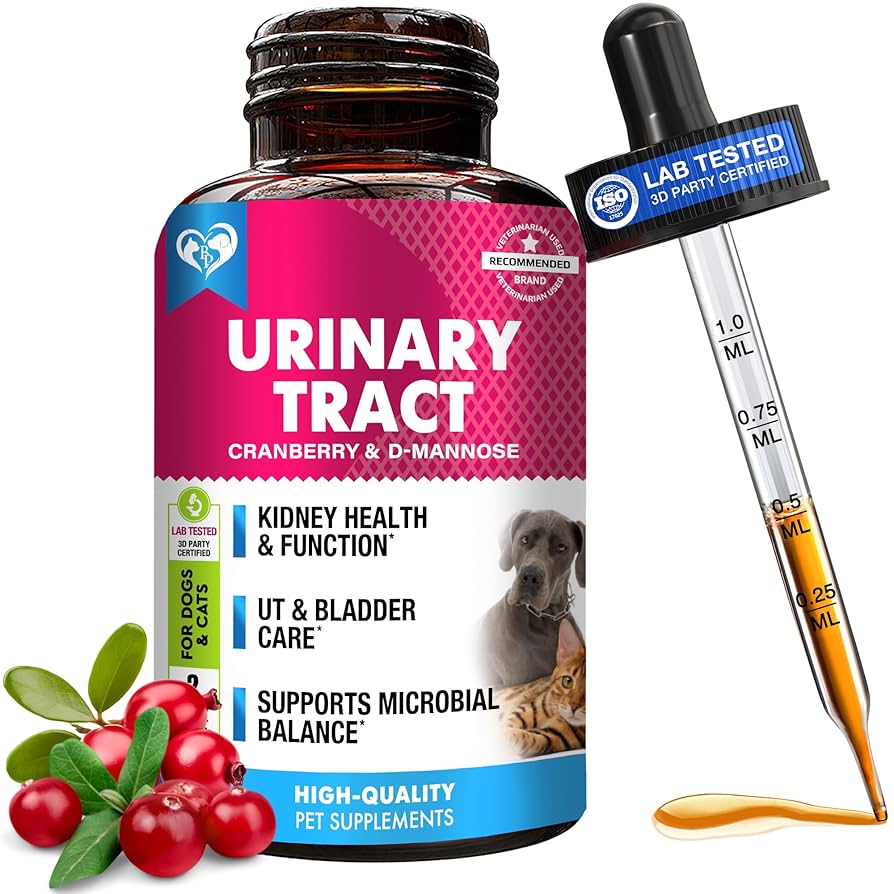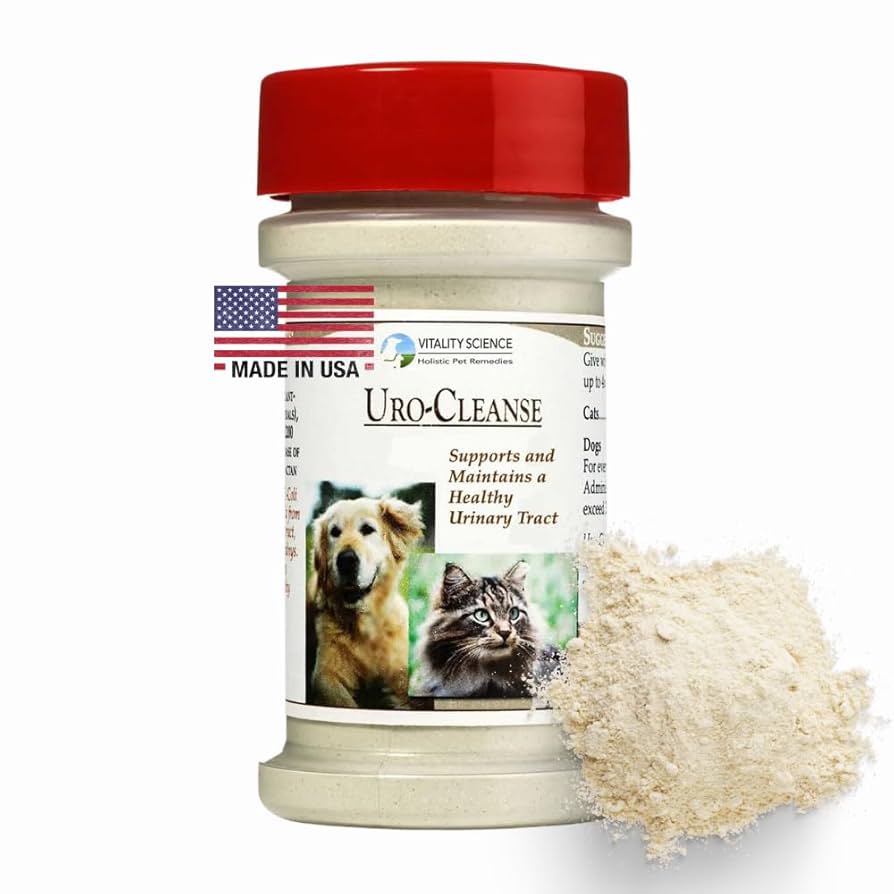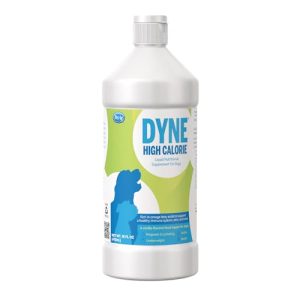If your dog is showing signs of discomfort or frequent urination, you might be worried about a urine infection. You want to help your furry friend feel better fast, but what exactly should you give them?
Choosing the right treatment can be confusing and stressful. This guide will walk you through safe and effective options to ease your dog’s discomfort and support their recovery. Keep reading to discover what you can do today to help your dog get back to their happy, healthy self.

Credit: www.chewy.com
Symptoms Of Canine Urinary Infection
Recognizing the symptoms of a canine urinary infection early can make a huge difference in your dog’s comfort and recovery. These infections often start subtly, but they can quickly worsen if left untreated. Paying close attention to your dog's behavior and physical signs can help you catch the problem before it escalates.
Common Signs To Watch For
You might notice your dog urinating more often than usual or having accidents inside the house despite being trained. Sometimes, the urine may have a strong odor or even appear cloudy or bloody, which are clear red flags. Your dog may also show signs of discomfort, such as whining while urinating or licking their genital area excessively.
Other symptoms include lethargy, loss of appetite, and sometimes fever. If your dog seems restless or is frequently trying to go outside without producing much urine, these are signals you shouldn’t ignore. Pay attention to these subtle changes—they can be your first clue that something is wrong.
When To Visit The Vet
If you spot any of these signs, it’s crucial to schedule a vet visit promptly. A urine infection can lead to serious complications, including kidney damage, if not treated early. Your vet will perform tests to confirm the infection and recommend the right treatment.
Don’t wait for symptoms to worsen. If your dog is showing signs of pain, blood in the urine, or any sudden changes in behavior, seek veterinary care immediately. Have you ever hesitated to call the vet, only to wish you hadn’t? Acting quickly can save your dog a lot of discomfort and protect their health.
Causes Of Urinary Infections In Dogs
Urinary infections in dogs often result from bacteria entering the urinary tract. Poor hygiene, bladder stones, or weakened immunity can increase the risk. Treating these infections usually involves antibiotics and plenty of water to help flush out bacteria.
Urinary infections in dogs can cause discomfort and health issues. Understanding the causes is crucial for prevention and treatment. Let’s explore the common causes of urinary infections in dogs.Bacterial Infections
Bacteria are the most common cause of urinary infections in dogs. These microorganisms enter the urinary tract, leading to infection. Dogs with weakened immune systems are more prone to bacterial infections. Maintaining good hygiene can help reduce the risk.Diet And Hydration Factors
Diet plays a vital role in urinary health. A diet low in moisture can concentrate urine, leading to infections. Ensure your dog gets enough water daily. A balanced diet with the right nutrients supports urinary health.Underlying Health Issues
Certain health conditions increase the risk of urinary infections. Diabetes and kidney disease are common culprits. These conditions can alter urine composition, promoting infections. Regular veterinary check-ups are essential for monitoring and managing these issues.Veterinary Treatments For Urinary Infections
Veterinary care plays a crucial role in treating urinary infections in dogs effectively. These infections need targeted treatment to clear up quickly and prevent further complications. Understanding the veterinary approach can help you support your dog better during recovery.
Antibiotics And Medications
Antibiotics are the main treatment your vet will prescribe for a dog’s urinary infection. They work by killing the bacteria causing the infection. The type and duration of antibiotics depend on the severity and the specific bacteria involved.
Sometimes, vets also recommend medications to ease symptoms like pain or inflammation. These can include pain relievers or anti-inflammatory drugs. Giving your dog the full course of prescribed antibiotics is vital—even if they start feeling better quickly.
Have you noticed your dog resisting medication? You’re not alone. Many dog owners find creative ways to hide pills in treats or soft food, making the process less stressful for both.
Diagnostic Tests
Before starting treatment, your vet will usually perform diagnostic tests to confirm the infection and identify the bacteria type. This helps ensure the antibiotics prescribed are effective.
- Urinalysis:A basic test that checks the urine for bacteria, blood, and other indicators of infection.
- Urine Culture:This test grows bacteria from the urine sample to pinpoint exactly which antibiotic will work best.
- Blood Tests:Occasionally, vets order blood work to check your dog’s overall health and rule out other issues.
Getting these tests done might feel like extra steps, but they can prevent the frustration of using the wrong medication. Have you ever wondered why some infections keep coming back despite treatment? Proper diagnosis is often the key to stopping the cycle.

Credit: www.amazon.com
Home Remedies To Support Healing
Supporting a dog’s healing from a urine infection at home can ease discomfort and speed recovery. Gentle care and natural aids help protect the urinary tract and reduce irritation. These remedies work best alongside veterinary advice and prescribed treatments.
Hydration Tips
Water flushes out bacteria from the bladder. Fresh water should always be available to your dog. Encourage frequent drinking by:
- Changing water often to keep it fresh
- Using a pet water fountain for attraction
- Adding a little low-sodium broth to the water
- Offering ice cubes as treats in hot weather
Proper hydration helps dilute urine and prevents bacterial growth.
Cranberry Supplements
Cranberry is known for supporting urinary health. It may prevent bacteria from sticking to the bladder walls. Use cranberry supplements made for dogs only. Avoid giving raw cranberries or juice with added sugar. Follow dosage instructions carefully to avoid stomach upset.
Natural Herbs And Remedies
Several herbs soothe the urinary tract and fight infection. Common options include:
- Marshmallow root – reduces inflammation and irritation
- Dandelion leaf – acts as a natural diuretic
- Uva ursi – helps cleanse the urinary system
Always consult your vet before using herbs, as some may not suit your dog’s health or medications.
Dietary Adjustments For Prevention
Adjusting your dog’s diet can play a key role in preventing urine infections. What you feed your dog affects their urinary tract health more than you might think. Small changes in daily meals can help maintain a balanced pH level in the urine and reduce the chances of infections.
Foods To Include
- Cranberries:These berries contain compounds that prevent bacteria from sticking to the bladder walls. Adding cranberry supplements or fresh cranberries can be beneficial.
- Lean Proteins:Chicken, turkey, and fish provide essential nutrients without excess fat. These proteins support overall health and immune function.
- Water-Rich Vegetables:Cucumbers, celery, and zucchini help keep your dog hydrated, flushing out toxins from the urinary tract.
- Probiotics:Found in yogurt or specialized supplements, probiotics promote good bacteria in the gut and urinary system.
- Omega-3 Fatty Acids:Sources like fish oil reduce inflammation and support bladder health.
Foods To Avoid
- High-Sugar Treats:Sugar feeds harmful bacteria and can worsen infections. Avoid sugary snacks and processed treats.
- Artificial Additives:Colors, flavors, and preservatives found in many commercial dog foods may irritate the urinary tract.
- Excessive Salt:Too much salt can dehydrate your dog, concentrating urine and increasing infection risk.
- Spicy or Acidic Foods:These can cause irritation and should be kept out of your dog’s diet.
- Dairy Products:Some dogs are lactose intolerant, and dairy can upset digestion, indirectly affecting urinary health.
Have you noticed how small dietary tweaks can make a big difference in your dog’s health? Paying attention to what you add or remove from their plate might just be the simplest way to protect them from future urine infections.
Lifestyle Changes To Reduce Recurrence
Preventing recurring urine infections in your dog involves more than just medication. Adjusting daily habits can make a significant difference. Small lifestyle changes help keep your dog comfortable and reduce the chances of another infection.
Regular Exercise
Keeping your dog active promotes healthy bladder function. Exercise encourages regular urination, which helps flush out bacteria before they can cause trouble.
Try to set aside time for daily walks or play sessions. Even short bursts of activity throughout the day can support your dog’s urinary health.
Hygiene Practices
Maintaining cleanliness is crucial. After your dog urinates, gently wiping the genital area can prevent bacteria buildup.
Also, clean their bedding and living areas frequently. Dirty environments can harbor germs that lead to infections.
Have you noticed how your dog’s behavior changes when their surroundings are fresh? Keeping things clean makes a big difference.
Stress Reduction
Stress weakens your dog’s immune system, making infections more likely. Create a calm, secure environment to help your dog feel safe.
Simple routines, quiet resting spots, and gentle affection can lower stress levels. If your dog shows signs of anxiety, consider calming toys or consult your vet for advice.
Think about your own experiences—does stress ever affect your health? Dogs are no different, and reducing their stress can protect them from repeated infections.
When To Seek Emergency Care
Knowing when to seek emergency care for a dog’s urine infection can save your pet’s life. Some infections worsen quickly and need immediate attention. Early action prevents serious health risks and complications.
Signs Of Severe Infection
- High fever over 103°F (39.4°C)
- Repeated vomiting or diarrhea
- Blood in urine or dark, cloudy urine
- Straining or inability to urinate
- Extreme lethargy or weakness
- Severe abdominal pain or discomfort
- Loss of appetite lasting more than a day
Complications To Watch For
- Kidney infection or failure
- Bladder stones blocking urine flow
- Spread of infection to the bloodstream
- Severe dehydration from vomiting
- Sepsis, a life-threatening body response

Credit: www.amazon.com
Frequently Asked Questions
What Are The Best Medications For Dog Urine Infections?
Antibiotics prescribed by a vet effectively treat dog urine infections. Common options include amoxicillin and cephalexin. Always follow your vet’s dosage instructions for safe and effective recovery.
Can Natural Remedies Help A Dog’s Urine Infection?
Natural remedies like cranberry supplements and probiotics may support urinary health. However, they should not replace veterinary antibiotics. Consult your vet before using natural treatments to ensure safety and effectiveness.
How Long Does It Take To Cure A Dog’s Urine Infection?
With proper antibiotic treatment, most dog urine infections clear within 7 to 14 days. Timely veterinary care is crucial to prevent complications and ensure full recovery.
What Diet Changes Help Dogs With Urine Infections?
Feeding a balanced diet with added moisture supports urinary health. Avoid high-salt or acidic foods. Special urinary health dog foods can reduce infection risks and promote bladder health.
Conclusion
Giving your dog the right care helps fight urine infections fast. Clean water and a healthy diet support healing. Always follow your vet’s advice for medicines or treatments. Watch your dog closely for any changes in behavior. Early action can stop the infection from getting worse.
Keep your dog comfortable and stress-free during recovery. A happy, healthy dog means a happy home. Remember, prevention is key to avoid future infections. Simple steps make a big difference in your dog’s health.

Emily Barker is the founder of ChillDogLife.com, a space dedicated to helping pup parents discover the best dog products, lifestyle tips, and cozy ideas for happier homes.
A lifelong dog lover, Emily combines her passion for pets with a knack for research to share trusted recommendations on everything from toys and furniture to health and everyday care.
Her goal is simple: to make life easier, stylish, and more joyful for dogs and the people who love them.







